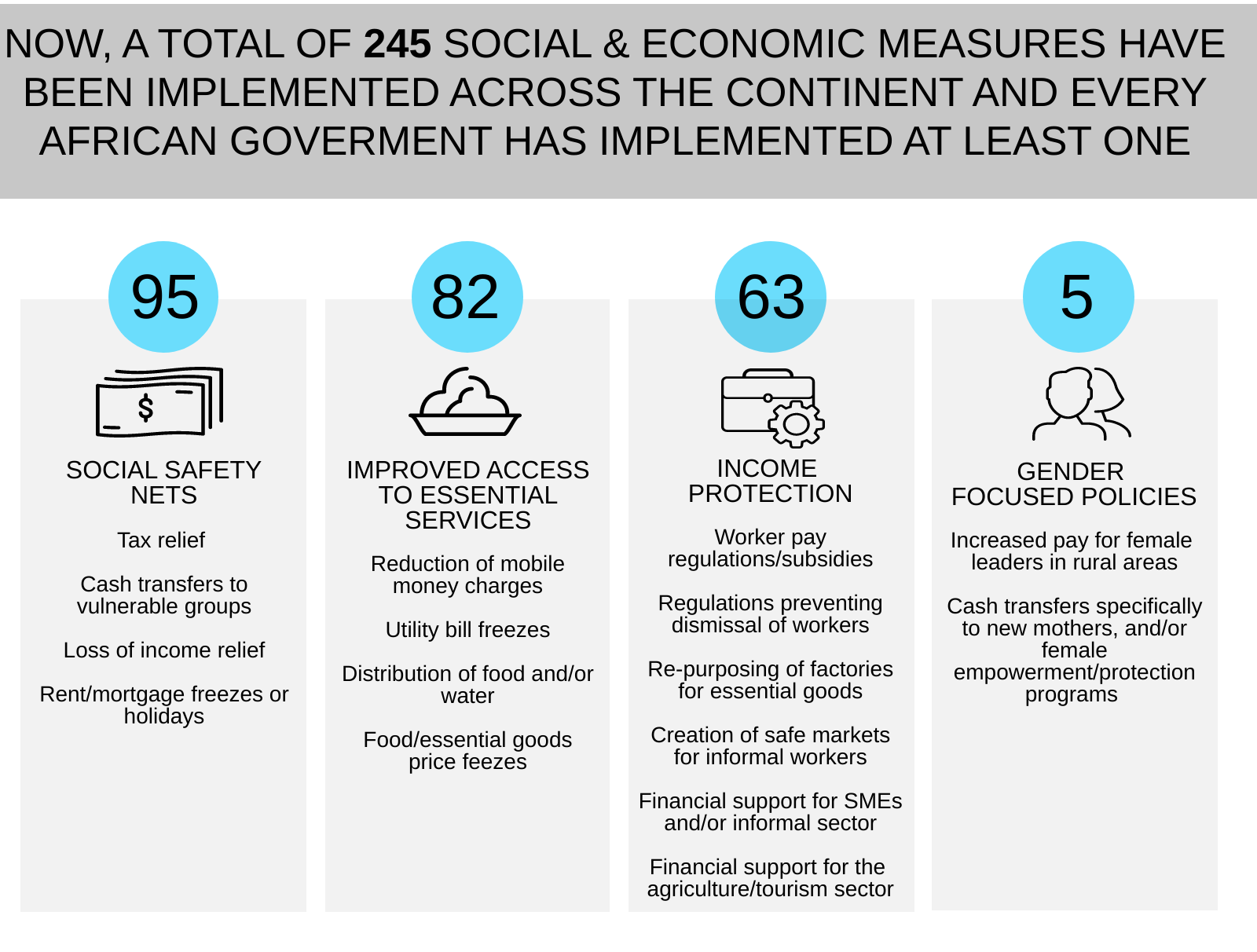Updated Weekly
Do you want to know how your country is coping with COVID19? And how your African neighbours are coping in comparison? Is your government doing all it can to learn the best lessons and provide the best guidelines for citizens to live, while avoiding overwhelming health systems and unnecessary deaths?
If so, you’ve come to the right place.
Across the world and in Africa, COVID19 cases, deaths and recoveries are continuing to rise. The rate of spread of COVID19 across African countries has been slower than the rest of the world, but it is still accelerating over time.
The initial response of the majority of African governments to COVID19- as we charted in this infographic series, was absolutely spot on and fit into three categories:
- To close down international borders quickly;
- To bring in social distancing and reduce economic activity as much as possible in order to limit the spread of the disease,
- To introduce economic and social measures to help limit the impact of reduced economic activity on people’s ability to live and feed themselves. Our analysis suggests over 175 million people were impacted as a result of these measures.
Over time, African governments have also ramped up testing, although with smaller budgets to spend on tackling COVID19 (most were able to allocate less than 1% of GDP), challenging global supply chains and limited medical facilities, this has been harder for African nations than for many other countries around the world.
As we have charted in our infographics, the impact of these responses so far has been positive compared to other countries that took different paths. Most African governments have been able to avoid extended economic shut-downs of their economies – using curfews and face masks to support social distancing protocols, while also “flattening their curves”. There is not one African nation that has seen the kind of exponential rises of cases and deaths experienced in some European countries or US states. Hence, most health systems have so far not been overwhelmed, and recoveries strong, meaning death rates have generally been lower than the rest of the world.
However, as we have also observed before, the biggest challenge is the economic fallout of COVID19. After such rapid rises in economic and social support measures, are countries still able to maintain them? Are there innovations that countries are using to manage these needs? Are debt payment obligations proving a barrier to doing more?
The answer is yes, yes and a maybe. What we observe this week is African governments have now implemented 245 different measures to support citizens – up from 99 when we first examined this question in early April. Most are not only maintaining these measures, but expanding them to more people, including in new directions with gender-focused, agriculture-focused as well as tourism-focused support measures – one of the hardest hit sectors. This has to be applauded in this difficult time. But how long can it continue?
What conclusion to draw?
While just 15 African countries account for 91% of all COVID19 cases in Africa, all economies are suffering its global impacts as well as the challenges of social distancing. African governments do not yet seem to be getting weary or negligent, but the fight against COVID19 is likely to continue for a long time ahead. Our hope is that innovative ways can be found to support them in this fight, especially before a vaccine is found and able to be used by African citizens.
Check out the findings yourself, the data for where your country fits, and do let us know your reflections!

To find out how Development Reimagined can help you, your organisation or Government during the COVID-19 outbreak please email the team at clients@developmentreimagined.com .
A huge thanks go to Rosie Wigmore, Rosie Flowers, and Jin Yu Chen for their work on the graphic and collecting/analysing the underlying data.
The spending data was collated from a range of sources including: the Milken Institute Africa Tracker; the IMF policy tracker; as well as government websites and media reports. Other COVID19 data was collated from our world in data and Africa CDC.
If you spot any gaps, please send your feedback to us at drteam@developmentreimagined.com, we will aim to verify and rectify asap.
July 2020


